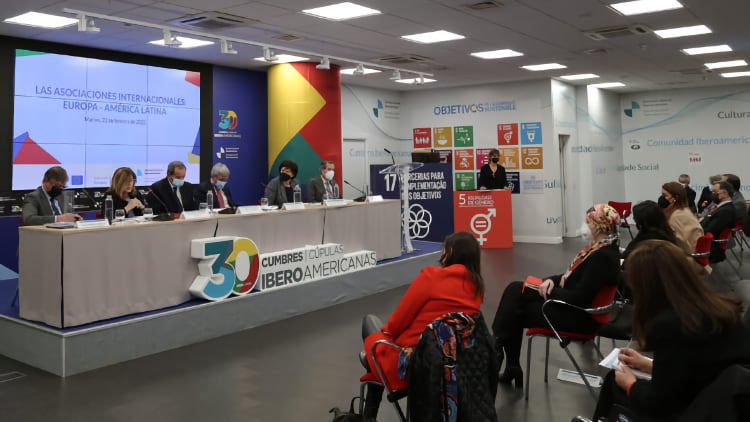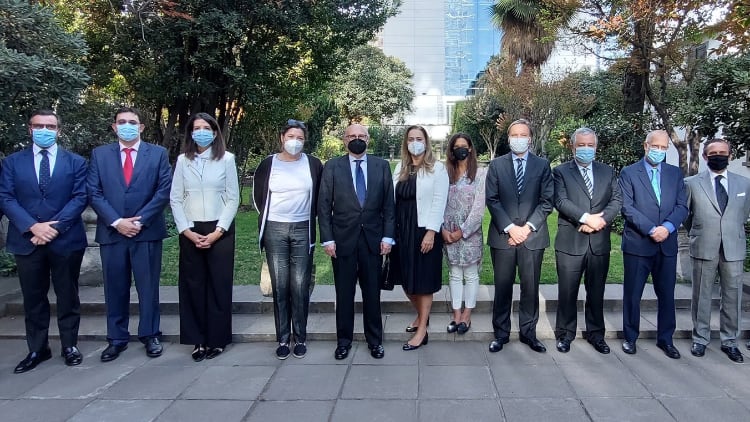The Diplomat
The new Ibero-American Secretary General, Andrés Allamand, said yesterday that “relations between Latin America and Europe must be densified” and thus increase their influence on the international stage.
During his speech at the conference ‘International partnerships: Europe-Latin America’, organised by the Ibero-American General Secretariat (Segib), Allamand stressed that there is enormous potential in the relationship between the two blocs, based on common roots and shared values such as democracy and respect for human rights.
He also considered it important to continue advancing on a common agenda that takes on the defence of multilateralism, the fight against climate change, progress in digitalisation, progress in gender equality and the inclusion of vulnerable groups. In this regard, he insisted that the relationship between Europe and Latin America should be strategic in nature, that is to say, long-term, mutually beneficial and capable of achieving objectives not only at the bilateral level but also at the global level.
Finally, Allamand stated that SEGIB is committed to providing capacities to give new impetus to the Europe-Latin America relationship from and for consensus, in order to articulate networks in triangular and horizontal cooperation.
At the same event, the Spanish State Secretary for International Cooperation, Pilar Cancela, highlighted the importance and uniqueness of Spanish Cooperation and advocated a joint effort for the empowerment of women, with public policies and an agenda that takes into account social cohesion, democratic values, justice and institutionality.
Cancela said that relations between Europe and Latin America are solid, but “they need a new impetus”. She acknowledged that, in order to achieve this, “the complicity of the other partner countries and European institutions is needed, although at present the focus does not seem to be on Latin America, especially in terms of development cooperation, her area of work.
The State Secretary stated that Spain’s rotating Presidency of the EU in the second half of 2023 will be “an enormous opportunity” to focus on this issue.
For his part, the Director for the Americas of the European External Action Service EEAS, Javier Niño, regretted the “strategic blindness” on the part of the EU, given that “Euro-compatibility” is in Latin America, and it is with these countries that the bloc can “fight the current battles”.
He also considered that the time has come “to make a fist on the table” for the EU to close the agreement with Mercosur as well as with Mexico and Chile. “This is also Spain’s turn”, he said, regretting “the political blockade led by France for circumstantial political reasons”. “If we don’t sign, it will pave the way for China,” he warned, while also stating the need for the issue to be put on the table once the French presidential elections in April are over.
At the event, the director of the Carolina Foundation, José Antonio Sanahuja, stressed the role of advanced cooperation, based on social welfare that redefines the social contract and contemplates the 2030 Agenda.
The Director for Latin America, the Caribbean and Relations with Overseas Countries and Territories of the European Commission’s Directorate-General for International Partnerships (INTPA), Jolita Butkeviciene, explained the importance of defining and finding ways to make this type of partnership more effective.
The event, which was held at the premises of the Ibero-American General Secretariat (SEGIB) in Madrid, was moderated by the executive director of the EU-LAC Foundation, Adrián Bonilla, and could also be followed online.







